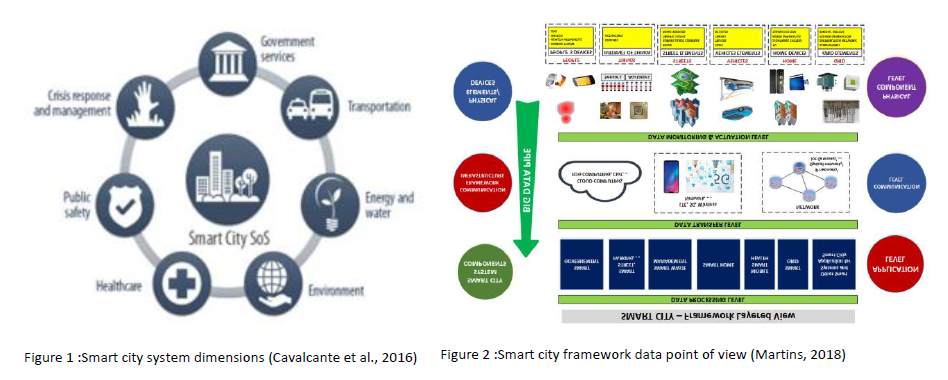Research conducted as part of a project by the Faculty of Computing and Digital Technology at Birmingham City University between November 2021 and February 2022.
The objective of this research is to develop a system architecture framework for urban environments that supports the digital transformation of urban areas into smart cities.
Introduction
Currently, more than half of the world’s population resides in urban areas—a phenomenon that highlights a clear and accelerating trend toward global urbanization. According to estimates from the United Nations (UN), this trend will not only continue but is expected to intensify exponentially in the coming decades. This unprecedented urban growth presents significant challenges in terms of sustainability, quality of life, resource management, and urban governance. In this context, the concept of the smart city emerges as a key strategy for addressing the complex challenges associated with contemporary urban development. A thorough understanding of this concept and its practical application is essential for designing effective public policies that ensure sustainable, resilient, and inclusive urban environments.
Smart cities are characterized by the implementation of digital technologies, information and communication infrastructures (ICT), sensor systems, and advanced data analytics to improve operational efficiency, the quality of urban services, and citizen engagement. However, in practice, these cities are often composed of a multitude of isolated systems that differ in structure, function, and ownership. These systems—which span sectors such as transportation, energy, security, healthcare, sanitation, and others—are managed by various entities, both public and private, which complicates their integration and hinders the implementation of holistic and sustainable solutions.
In light of this fragmentation, it is imperative to adopt a systemic perspective that views the smart city as a network of interconnected systems that interact dynamically, exchange information, and operate in a coordinated manner to achieve common goals aimed at collective well-being and sustainable urban development. This approach aligns with the theory of the “system of systems,” which posits that subsystems, although autonomous in operation, must be designed to cooperate and functionally integrate, thereby maximizing the added value of their interactions.
Various academic studies have explored the theoretical and methodological frameworks of the system-of-systems approach, identifying the technical, organizational, and social dimensions required for its implementation in urban contexts. However, despite the existence of numerous conceptual frameworks focusing on specific aspects of smart cities—whether centered on data, infrastructure, services, or governance—there is a clear lack of research aimed at developing integrated urban architectures that enable effective interoperability among the various subsystems. This gap represents a significant barrier to the comprehensive evolution of cities toward truly intelligent and digital models.
From a functional perspective, a smart city can be conceived as a large-scale organizational entity comparable to a major corporation, where multiple departments and operational units must be aligned under a shared strategic vision. In this sense, just as there are well-established frameworks for enterprise systems architecture, it is both possible and necessary to design a framework for urban systems architecture. Such a proposal would allow for the orchestration of all city components—physical infrastructures, digital platforms, institutional actors, and citizens—into a coherent ecosystem capable of adapting to change, learning from data, and continuously improving its processes.
The ultimate goal of developing an urban systems architecture is to facilitate the transition of cities toward digital transformation, understood not merely as technological modernization, but as a profound reconfiguration of urban life centered on sustainability, equity, democratic participation, and social innovation. Only through this comprehensive and collaborative approach will it be possible to successfully meet the challenges of the 21st century and build truly smart cities that meet present needs without compromising the well-being of future generations.

Research Objectives Undertaken
- Identify the critical components of smart cities that must be integrated into the system architecture.
- Identify the relationships between the identified components.
- Identify the potential limitations in the integration of the components.
- Identify the key success factors for developing a comprehensive systems architecture.
